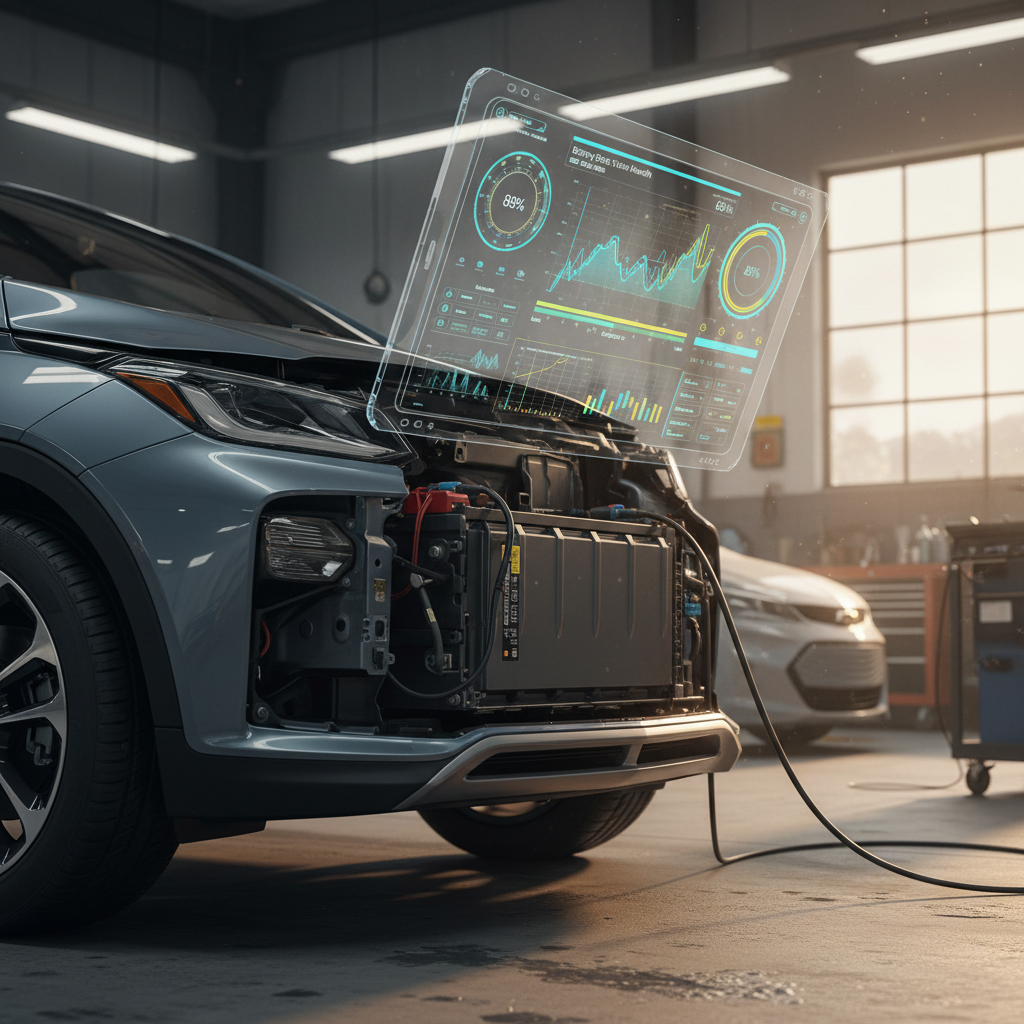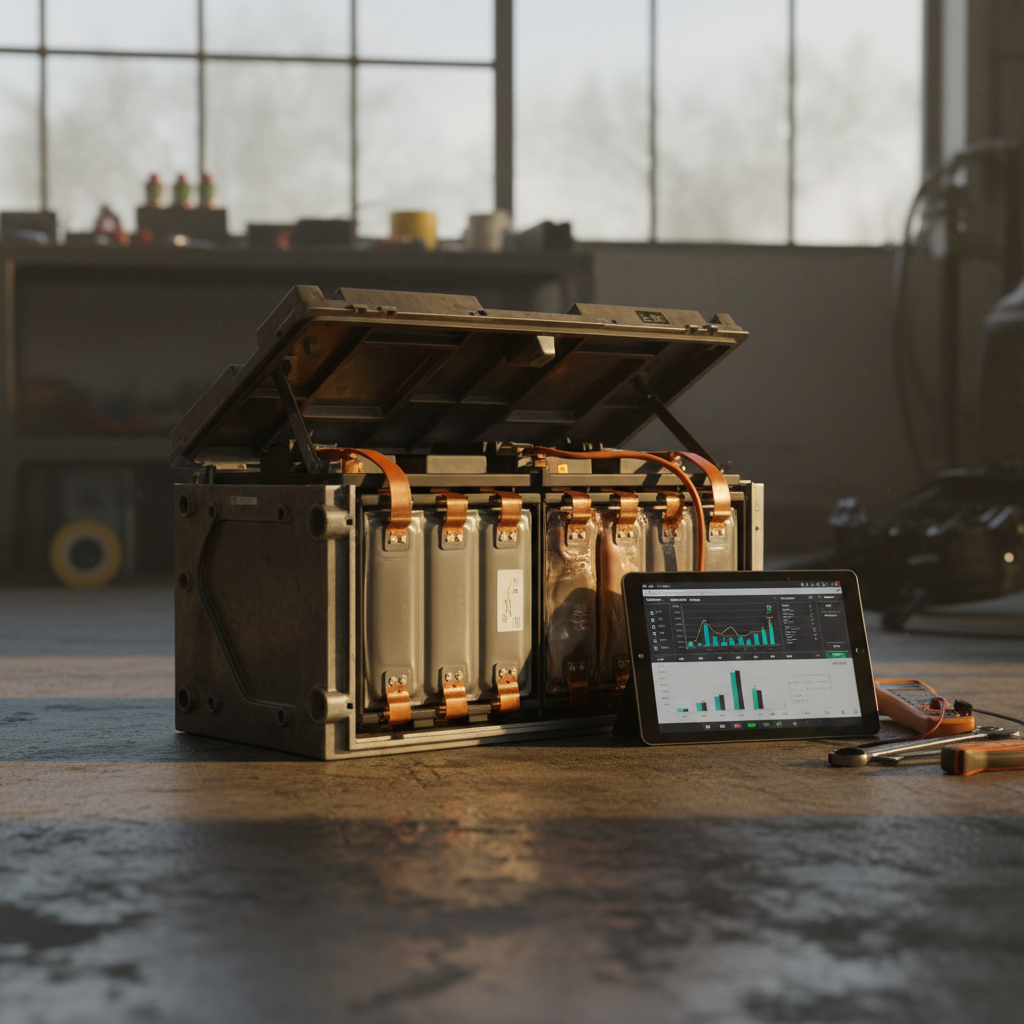If you’ve just bought an electric car, or you’re about to pick up a used EV from Recharged, the question of the best EV all season tires lands sooner than you think. EVs are heavier, torquier, and quieter than gas cars, which means the wrong tires can quietly erase your range, howl on the highway, and wear out thousands of miles early.
Quick takeaway
Why EVs Need Special All-Season Tires
EVs Are Reshaping the Tire Market
Three things make EVs much tougher on tires than comparable gas cars: weight, torque, and silence. The battery pack can add several hundred pounds, the motor’s instant torque scrubs rubber off the tread every time you launch, and the lack of engine noise turns tire roar into the loudest thing in the cabin.
- Extra weight means more heat and faster wear if the tire isn’t reinforced.
- Instant torque can feather the tread blocks, especially on budget ‘eco’ tires.
- Quiet cabins expose cheap tread designs; a noisy tire will drive you nuts at 70 mph.
- Range lives and dies with rolling resistance, so the wrong tire can chop 5–10% off your usable miles.
EV myth to ignore
EV All-Season vs Normal All-Season Tires
EV-focused all-season tires
- Often labeled with EV lines like “iON”, “Elect”, or “EV” in the name.
- Reinforced construction for higher load ratings and stiffer sidewalls.
- Compounds tuned for low rolling resistance and cool running.
- Extra engineering for noise reduction – variable pitch tread blocks, acoustic foam in some models.
Conventional all-season tires
- Designed around mixed gasoline fleet: lighter cars, less torque.
- Not always optimized for EV torque or weight; may wear faster on an EV.
- Some touring tires still offer excellent efficiency and comfort on EVs.
- Often cheaper up front but can cost more per mile if they wear out early.
Don’t chase the label, chase the spec
Top Picks: Best EV All-Season Tires in 2025
Tire tests move quickly, but in late 2025 a few patterns are clear. EV‑focused all-season lines from the major players, Michelin, Continental, Goodyear, Pirelli, Hankook, consistently show up at the sharp end of independent braking, noise, and efficiency tests. Below is a curated short list if you want to get to the point.
Best EV All-Season Tires by Use Case
Short list first, deep nerding later.
Best overall: Michelin CrossClimate 2 / CrossClimate 2 SUV
If you want one tire that just works, nearly everywhere, this is it. Outstanding wet and dry grip, genuine light‑snow ability, and strong efficiency on many EVs.
- Type: All-weather (severe-snow-rated)
- Best for: Mixed climates, year‑round use including occasional snow
- Downside: Pricey; can be a touch louder on some EVs at highway speed.
Best for range & quiet: Continental EcoContact 6 / EcoContact 6 Q
Not marketed as hardcore ‘EV only,’ but widely used as OE on EVs. Very low rolling resistance and refined noise manners.
- Type: Efficient touring all-season
- Best for: Maximizing range and cabin hush
- Downside: Not the hero in deep snow; think "four seasons minus one blizzard."
Best performance all-season: Pirelli P Zero All Season Plus 3 Elect
For drivers who actually enjoy on-ramps. The Elect version is tuned for EV weight and torque.
- Type: Ultra-high-performance all-season
- Best for: Sporty EVs, spirited driving
- Downside: Shorter tread life than touring tires; you pay in rubber what you gain in smiles.
Great Alternatives Worth a Look
If the headliners are out of stock, or out of budget.
Goodyear ElectricDrive / ElectricDrive GT
Goodyear’s EV-specific line, built to handle weight and torque with a focus on wet braking and tread life.
- Type: EV touring all-season
- Best for: Commuters who rack up highway miles
- Notes: Tread pattern can be slightly louder on some coarse asphalt.
Hankook iON evo AS / iON FlexClimate
Hankook has quietly become the value assassin in EV tires. The iON line routinely scores well in independent tests.
- Type: EV-focused all-season or all-weather
- Best for: Value shoppers who still care about range and grip
- Notes: Availability and fitment vary; check your size carefully.
Tesla, Hyundai, VW & friends
Head-to-Head Comparison Table
Best EV All-Season Tires: Snapshot Comparison
High-level look at the tradeoffs, range, grip, noise, and projected tread life. Always confirm specs for your exact tire size.
| Tire model | Focus | Range efficiency | Wet/snow grip | Noise/comfort | Typical tread life* |
|---|---|---|---|---|---|
| Michelin CrossClimate 2 | All-weather, all-rounder | High | Very high | High | 60k+ miles |
| Continental EcoContact 6 | Efficiency, comfort | Very high | Medium-high | Very high | 50–60k miles |
| Pirelli P Zero AS Plus 3 Elect | Performance EV | Medium-high | High | High | 45–55k miles |
| Goodyear ElectricDrive | EV touring, durability | High | High | High | 50–60k miles |
| Hankook iON evo AS / FlexClimate | Value EV all-season | High | High | Medium-high | 45–55k miles |
Ratings are directional, combining independent test results with manufacturer positioning.
About that asterisk
How to Choose the Right EV All-Season Tire
EV Tire Buying Checklist
1. Start with the door-jamb sticker
Open the driver’s door and find the factory tire size, load index, and speed rating. Don’t go below those numbers. EVs are heavy; this isn’t the place to improvise.
2. Decide your climate reality
If you see real snow and cold every winter, lean toward severe-snow-rated all-weather tires like CrossClimate 2 or Hankook FlexClimate. Mild climates can stick with conventional all-season touring rubber.
3. Rank what you care about most
Rate these from 1–3: <strong>range</strong>, <strong>wet/snow grip</strong>, <strong>noise/comfort</strong>, <strong>tread life</strong>, <strong>price</strong>. No tire wins all five; know your priorities before you fall down a review rabbit hole.
4. Check EV suitability in reviews
Look for reviews and tests specifically run on EVs. Comments about early wear on Teslas or Ioniqs are meaningful; they’re doing beta testing so you don’t have to.
5. Confirm availability and date codes
When you buy, ask for recent production (the DOT date code on the sidewall) so you’re not starting with rubber that’s already been aging in a warehouse.
6. Think about future resale
If you’ll sell or trade your EV in the next 1–2 years, putting a respected brand on the car helps the next buyer’s confidence, something that matters in used EV deals at places like <strong>Recharged</strong>.
Match your tires to your EV’s personality
Range, Noise, and Comfort: What Really Changes
Switching tires on an EV feels like changing the entire car’s character. Because the powertrain is so smooth and quiet, you notice every decibel of tire hum and every little penalty in efficiency. That’s the whole game with the best EV all-season tires: they quietly disappear into the background while your range gauge behaves itself.
Range
- Low rolling resistance can add back 10–15 miles on a typical 250–300‑mile EV over a full charge compared with aggressive performance tires.
- Square-shouldered all-weather patterns cost a bit of range but earn it back in winter safety.
- Under-inflated tires are silent range thieves; check pressures monthly.
Noise
- Look for phrases like “acoustic,” “noise tuned,” or “EV optimized” in tire descriptions.
- A stiff sidewall plus coarse pavement can make some performance tires drone; touring designs handle this better.
- If your car already rides firm (Model Y Performance, Kia EV6 GT-Line), favor comfort-leaning tires.
Comfort
- Higher load ratings are necessary, but ultra-stiff constructions can transmit every expansion joint.
- A good EV tire finds the balance: supportive but not wooden.
- Test drive on your local roads if you’re tire-shopping at a brick-and-mortar shop.

Don’t chase range at the expense of safety
Tread Life and Cost of Ownership
Tires are where running an EV gets very un‑sci‑fi and very old‑school: black rubber, real money. Compared with a similar gas car, you should assume you’ll buy tires slightly more often. The key is cost per mile, not sticker shock at the counter.
What to Expect from EV All-Season Tread Life
Your driving style is the multiplier on every number here.
Touring & efficiency tires
- Typical warranty: 50,000–65,000 miles.
- Real-world EV wear: often 40,000–55,000 miles with rotations.
- Best for: commuters, ride‑share drivers, and anyone trying to keep cost per mile sane.
Performance all-season tires
- Typical warranty: 40,000–50,000 miles.
- Real-world EV wear: sometimes 30,000–40,000 miles if you enjoy brisk launches.
- Best for: drivers who actually like driving and accept they’re effectively buying extra grip by the millimeter.
The silent tread killer
Installation, Rotation, and Maintenance
EVs may be low-maintenance mechanically, but they’re tire‑hungry. A little care pays back in range, safety, and cash.
- Rotate every 6,000–8,000 miles, or at every other service visit. Directional or staggered setups may require front‑to‑rear only.
- Ask your shop to torque lug nuts correctly, many EVs are sensitive to improper wheel installation.
- Check pressures at least monthly and before long trips. Set them when the tires are cold, using the spec on your door sticker, not the max on the sidewall.
- Have alignment checked whenever you hit something big (pothole, curb) or see uneven wear patterns.
- If you use a dedicated winter set, remember to re‑torque and re‑check pressures when you swap back to your all-season wheels.
Pro move for used EV buyers
Signs You Need New EV Tires
Tires rarely fail dramatically out of nowhere; they whisper first. On an EV, those whispers are easier to hear, if you’re listening.
- Tread depth at or below 4/32" for wet climates, 3/32" for dry, and 5/32" if you deal with regular snow.
- Feathering or cupping on the edges, often a sign of alignment or worn suspension, common with heavier EVs.
- New noises between 35–55 mph: rhythmic thumps, helicopter sounds, or a sudden "whub‑whub" that rises with speed.
- Visible sidewall damage, bulges, or cords showing. If you see fabric or steel, the conversation is over, do not drive it.
- Your EV’s range or efficiency suddenly drops and you’ve already ruled out temperature swings and driving style. Under‑inflated or dragging tires can be the culprit.
When in doubt, don’t drive it
FAQ: Best EV All-Season Tires
Frequently Asked Questions About EV All-Season Tires
The Recharged Take: Tie Your Tires to Your EV Purchase
The best EV all season tires aren’t magic; they’re just honest engineering aimed at the realities of an electric car: more weight, more torque, more silence. Whether you lean toward a do‑everything hero like Michelin CrossClimate 2, a range‑maximizing option like Continental EcoContact 6, or a performance‑bent Pirelli Elect, the goal is the same, keep your EV safe, efficient, and pleasant to live with year‑round.
If you’re shopping a used EV at Recharged, treat tires as part of the deal math, not an afterthought. Our Recharged Score battery health report tells you what’s happening under the floor; a quick look at brand, tread depth, and wear pattern tells you what’s happening where the car meets the world. Get both right, and your EV ownership experience feels quietly, satisfyingly sorted.



